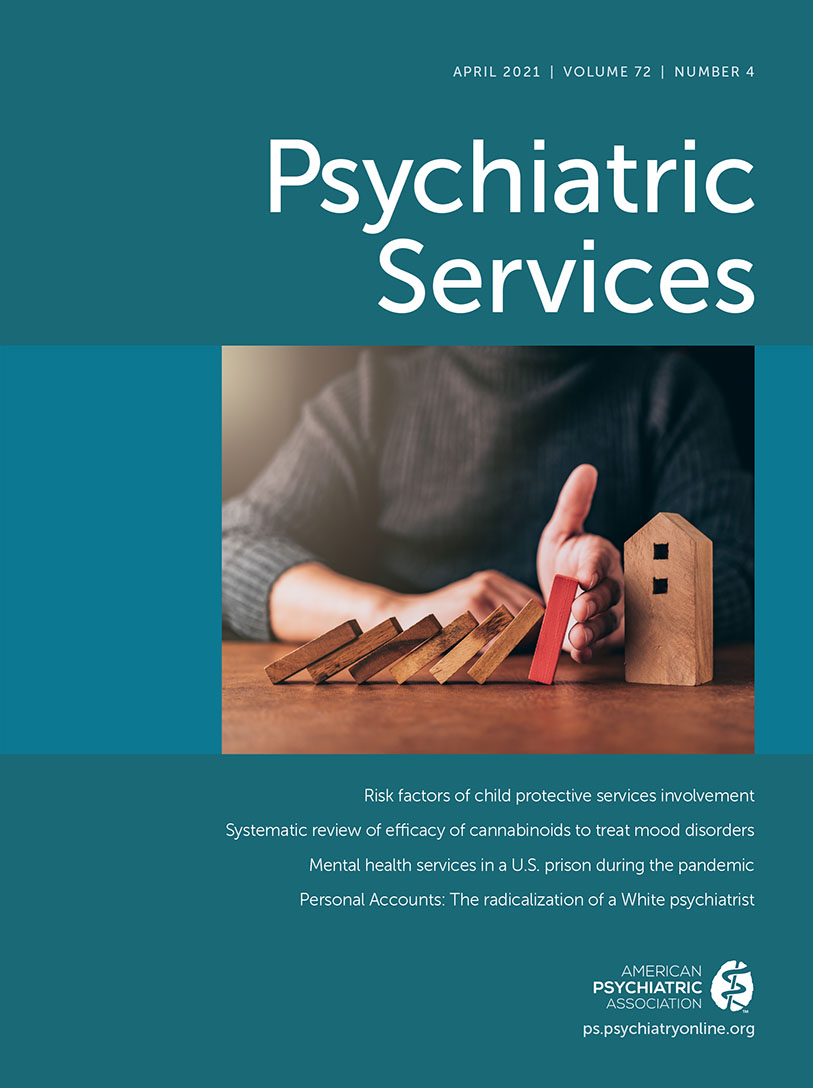Prevention in the Era of COVID-19 and the Role of Behavioral Health Care Teams
In this month’s issue, Novak et al. (1) examine data from the 2015–2018 National Survey on Drug Use and Health and demonstrate that patients with serious mental illness have a higher prevalence of most health conditions associated with severe COVID-19. Additional studies have found that patients with serious mental illness have significantly higher mortality rates from the virus. The pandemic has underscored the importance of prevention as a critical form of protection for people with serious mental illness, particularly with consideration of behaviors that can mitigate the spread of COVID-19. Patients with serious mental illness may interact more frequently with their behavioral health care teams than with other providers. Therefore, as behavioral health providers we are in a prime position to expand psychoeducation to include concrete COVID-19 prevention strategies.
Every interaction with patients during the COVID-19 pandemic is an opportunity to partner with patients and promote health and wellness, including equipping them and their families with accurate, up-to-date information about the COVID-19 vaccine. Patients with serious mental illness often have lower vaccine uptake rates than others, and vaccine education from a health care provider may increase uptake. Addressing patients’ and families’ questions, providing educational materials, and mobilizing support and resources to help patients acquire the vaccine, if they choose to, are critical ways behavioral health care providers can support vaccine efforts.
We also can continue to provide education on mask wearing, hand washing, and physical distancing. First, education on mask wearing should emphasize that masks need to cover the nose, mouth, and chin. Second, we can remind and model for patients that hand washing for at least 20 seconds is one of the most effective prevention methods to stop the spread of illness. Alternatively, hand sanitizer can be used as a form of hand hygiene. Third, we can explain that practicing physical distancing, where individuals stay at least 6 feet apart from people with whom they do not share a household, is an important part of preventing the spread of COVID-19. The Centers for Disease Control and Prevention’s website has many other recommendations, in addition to resources in multiple languages, that can be reviewed with patients.
While we educate on physical distancing, we must underscore the importance of remaining socially connected to help prevent the negative mental health consequences of isolation and loneliness. Social connectedness can include calling friends and family or utilizing video calls with one’s support network. Many peer support groups now offer virtual options. Several cities now have “warm lines” where individuals can speak to peers or gain nonemergency support from someone in their community, in addition to having their city’s crisis line available. As behavioral health providers, you can help by knowing your city’s COVID-19 “warm line” resources and providing them proactively to patients and acknowledging that the pandemic continues to present unprecedented challenges.
Novak et al. emphasize that patients with serious mental illness often have chronic comorbid medical conditions, particularly nicotine dependence and its associated consequences. These conditions put patients at greater risk for adverse outcomes from COVID-19. As behavioral health providers, we can provide patients with cessation treatment options, motivational interviewing, and anticipatory guidance such as reminding patients that numerous quit attempts may be required for success. Billing codes allow for providers to receive compensation for this type of preventive counseling.
Behavioral health providers possess a unique opportunity to support prevention efforts and help facilitate health-promoting behaviors, especially in the era of COVID-19. Their frequent contact and rapport with patients often make behavioral health care members some of the most well-poised health care workers to assist in these critical discussions on prevention. As the pandemic continues to disproportionately affect the most vulnerable populations, we must seize the opportunity to prevent disease whenever possible and work alongside our patients and communities to promote health.
1 : Health conditions associated with severe illness from COVID-19 among individuals with serious mental illness. Psychiatr Serv 2020; 72:s202000300Google Scholar



